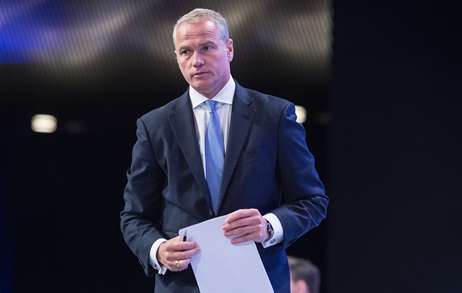Deutsche Boerse’s boss Carsten Kengeter has quit amid allegations of insider trading, offering to step back so the exchange can “avoid further burdens caused by the ongoing investigation”.
Investor pressure has been rising on Carsten Kengeter to leave following a probe that started earlier this year, when the group was in merger talks with the London Stock Exchange. The investigation is focused on whether €4.5m (£3.8m) worth of shares he bought in 2015 were purchased amid secret talks with the LSE.

He announced his decision to leave at the end of this year during a board meeting on Thursday, days after a Frankfurt court blocked a settlement that would have helped the group put the scandal behind it.
Kengeter’s contract was due to expire in March, but the board had promised to hold off on any decisions until the investigation had finished.
The company has publicly stood by him, and Kengeter has insisted the allegations are “unfounded”. However the probe has dogged the group and overshadowed its tie-up attempts.
With the case seen as harmful not only to the group’s image but also to Frankfurt’s attempts to snatch post-Brexit trade from London, top investors were reportedly calling for him to go. Earlier this week Handelsblatt reported that employees had nicknamed their boss ‘Herr Wanngehter’ which translates to ‘Mr When will he go’.
His decision to leave is intended to allow the company “to focus its energy back onto clients, business and growth and to avoid further burdens caused by the ongoing investigation”, the firm said. “It was with deep regret that the supervisory board accepted this request.”
A successor has not been announced, with the exit ironically being announced shortly after LSE’s chief executive Xavier Rolet also decided he was stepping down from the role.
Both sides had hoped to become one half of Europe’s biggest exchange operator this year with a £24bn tie-up, but the deal was quashed by European regulators in March over competition concerns. The decision ended the pair’s third formal attempt at a merger since 2000.








